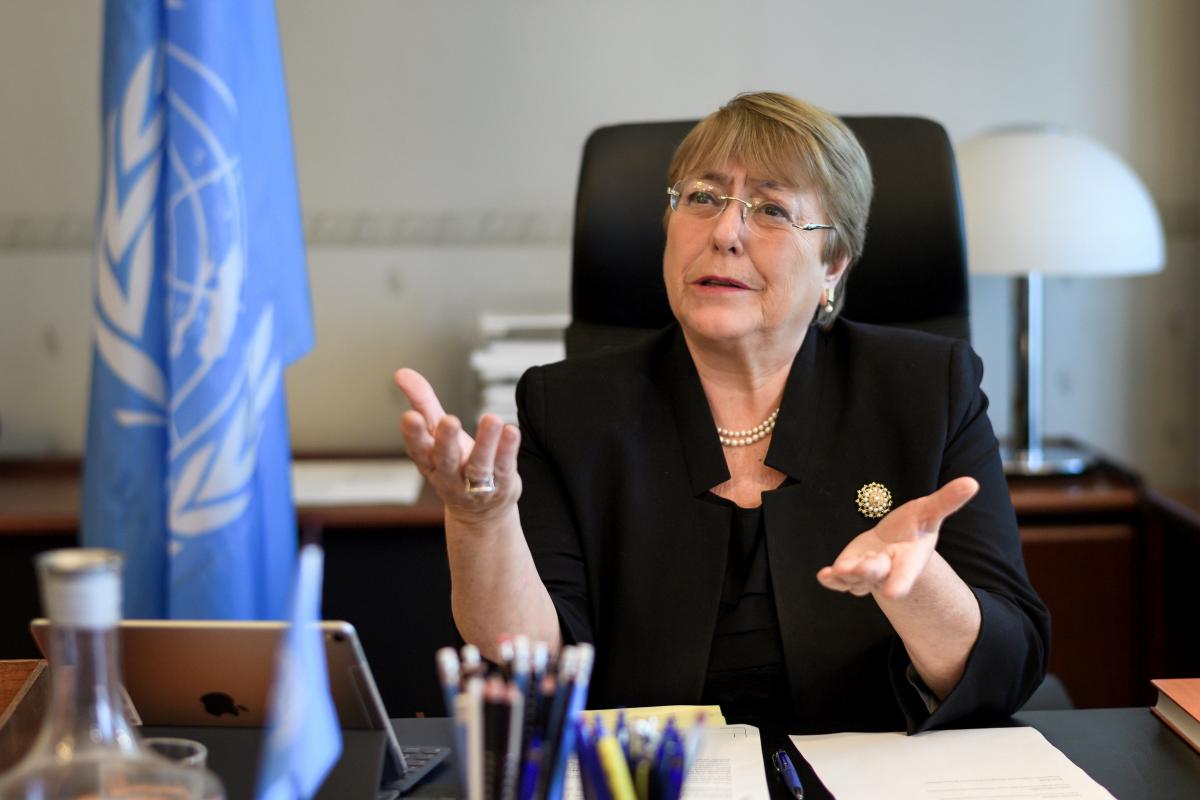UN rights chief Bachelet says free vote unlikely in Nicaragua
Bachelet called the detentions "arbitrary." "This makes it unlikely that Nicaraguans will be able to fully exercise their political rights in the elections," she said, noting that her office's recommendations to Nicaragua in recent years have not been implemented. Also speaking at the Human Rights Council session, Nicaraguan Foreign Minister Denis Moncada pushed back, saying the people Ortega's Sandinista government has arrested had committed crimes against the country's sovereignty, independence and security.

U.N. Human Rights Chief Michelle Bachelet said on Tuesday that Nicaraguans were unlikely to be able to fully exercise their political rights in November elections, amid a crackdown by President Daniel Ortega's government on the opposition.
Bachelet told the U.N. Human Rights Council that the situation in Nicaragua was quickly deteriorating, after at least 14 political opponents, including five presidential candidates, were arrested in recent weeks. Bachelet called the detentions "arbitrary." "This makes it unlikely that Nicaraguans will be able to fully exercise their political rights in the elections," she said, noting that her office's recommendations to Nicaragua in recent years have not been implemented.
Also speaking at the Human Rights Council session, Nicaraguan Foreign Minister Denis Moncada pushed back, saying the people Ortega's Sandinista government has arrested had committed crimes against the country's sovereignty, independence and security. Moncada, speaking immediately after Bachelet, rebuked the United States and Europe for a history of intervention. He defended Nicaragua as a country of laws.
"We have the right to peace that we have been building with great effort amid centuries of aggression, meddling and intervention by the United States and complicit European powers," he said. The Sandinistas first swept to power in 1979 after toppling dictator Anastasio Somoza.
The United States responded by funding right-wing guerrillas known as Contras who, along with Washington’s economic embargo against Nicaragua and the Sandinistas’ mismanagement, laid waste to the economy, despite support from Cuba and the Soviet Union. Ortega was voted out in 1990. He returned to office in 2007 and is seeking a fourth consecutive term later this year.
Human Rights Watch on Monday urged the United Nations and member countries on Tuesday to pressure Ortega, saying Secretary-General Antonio Guterres should raise the crisis with the Security Council. U.S. President Joe Biden's administration has said it is prepared to review "trade-related activities" with Nicaragua if its coming elections are not free and fair. It has also imposed sanctions on Ortega's daughter and three allies of Ortega.
(This story has not been edited by Devdiscourse staff and is auto-generated from a syndicated feed.)
ALSO READ
Israel opposition leader, in Washington, calls hostage deal hard but 'doable'
Foreign Secy Vinay Kwatra bolsters India-US relations on Washington visit
Defense relationship part of US-Iraq talks in Washington next week, US official says
Kishida delights Washington with promise of 250 cherry trees as independence gift
Defense relationship part of US-Iraq talks in Washington next week, US official says










